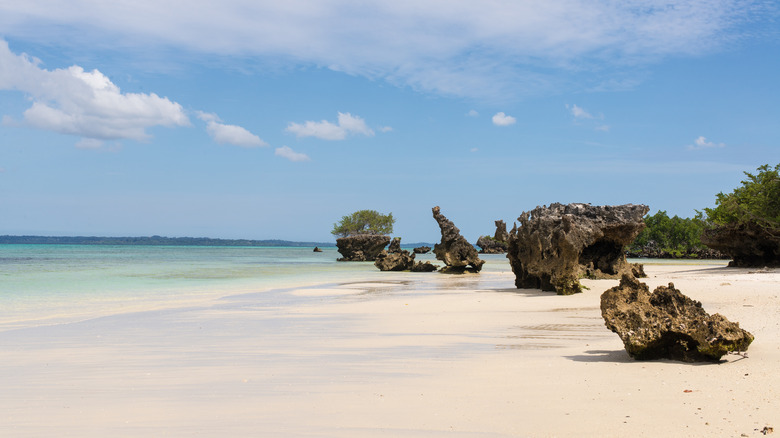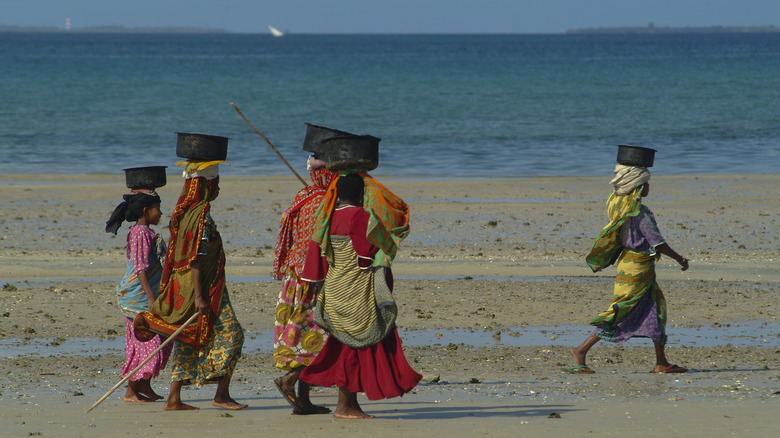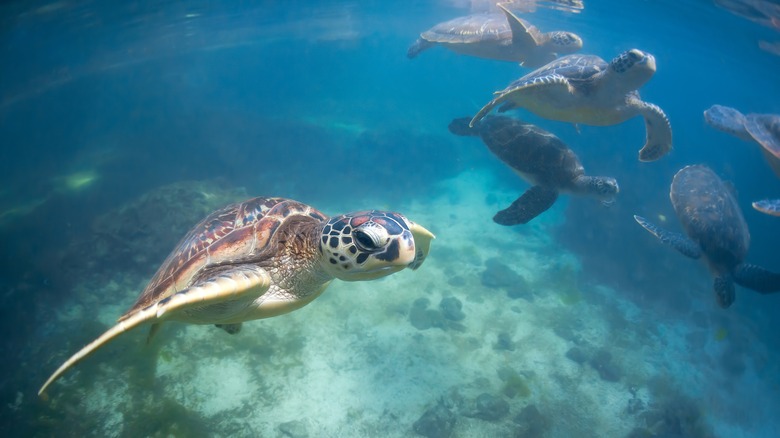This Secret Island In The Zanzibar Archipelago Offers Uncrowded Tropical Perfection
Tucked away just off the northwestern side of mainland Tanzania in the Zanzibar Archipelago, Pemba is home to pristine beaches, lush landscapes, luxury accommodations, and welcoming locals. The little sibling to the larger island of Unguja, Pemba is smaller and less well-known but no less beautiful. Together, these two islands sit about 35 miles from the coast of East Africa. Nestled within the archipelago, you might expect Pemba to be difficult to visit. This isn't the case, and visitors can reach Pemba by flights from Dar es Salaam, Zanzibar, or Arusha to Pemba Airport near Chake Chake. Alternatively, visitors can take a ferry from Zanzibar.
While Unguja is relatively flat, Pemba boasts hills and a more fertile landscape, perfect for exploration and stunning views of the surrounding greenery. Due to its relatively small size, Pemba is often overlooked by travelers and receives fewer visitors than its larger neighbor. However, this relative seclusion adds to the charm of this unspoiled island, making its rich history and culture that much more exciting.
Pemba has no shortage of activities to fill up your time, and its tropical, untouched landscape means that visitors to this secret island can expect an idyllic, exciting, and uncrowded getaway. Pemba is close to the equator, and temperatures average around 80 degrees Fahrenheit throughout the year, so the ideal time to visit depends on your preferred activities. For scuba diving enthusiasts, the best periods are from June to September and January to March, outside the rainy seasons. Prime fishing season, however, runs from mid-July to mid-April. If you choose to visit in July, you might even see the lively Pemba Dance Festival, full of traditional music, dance, food, and costumes, or Mwaka Kogwa, a colorful festival celebrating the Shirazi New Year.
Pemba Island's rich culture and warm hospitality
Pemba is well-regarded as a friendly and welcoming place, its culture stemming from Arabic and Swahili roots. Locals are keen to speak to visitors and introduce them to their homes, and travelers to Pemba will be spoilt for choice when it comes to cultural and historical immersion. For those considering a longer stay, learning about the local lifestyle and culture can only enhance your experience.
The island has a rich cultural heritage and several ruins across its landmass. From ancient cities to individual ruined buildings to markets in old towns, Pemba has a lot to offer, with ruins like Ndagoni Ruins at Ras Mkumbuu and market towns like Chake Chake particularly popular among visitors on Tripadvisor. As the island has a history of trade, especially in cloves, it's hard to miss the smell of spices, wafts of traditional curries, and sounds of chatter as you wander through the harbor and streets.
A number of restaurants come highly recommended by other travelers, including Pemba Moonlight Guesthouse & Restaurant and The Aiyana Beach Resort, both of which have 4.5 stars on Google Reviews. From cooking classes to traditional restaurants, it's well worth taking a food tour here.Whether you're in Zanzibar for a while (check out our do's and don'ts if you are) or decide to spend your time solely on Pemba, this island — and the whole archipelago — offers many experiences and things to do.
Adventure and relaxation on Pemba Island
Pemba is renowned for its exceptional diving opportunities, boasting crystal-clear waters, numerous reefs, and wrecks. Divers can expect to encounter diverse marine life, including colorful reef fish, triggerfish, spinner dolphins, endangered Indian Ocean humpback dolphins, and various species of rays. It is also an excellent destination for swimming with sea turtles, as the waters house important nesting sites for these majestic creatures. The underwater landscape features dramatic walls, corals, and sheltered bays, making it a suitable diving spot for all levels, and numerous gear hire shops are available on the island. In particular, Afro Divers comes with 5 stars on Tripadvisor, with travelers commenting on their friendly and professional team. Prices start at $120 for two morning dives, and they offer PADI diving courses. On land, Pemba and Unguja are known as the Spice Islands thanks to the cloves, cinnamon, nutmeg, and other produce grown there, and there are numerous farms, sanctuaries, and tropical walking routes.
Along with forests and natural swimming pools, this secret island also has a number of accommodation options, from luxurious resorts to eco-friendly lodges, catering to various preferences and budgets. The Manta Resort, for example, offers underwater rooms, while other options focus on sustainable and environmentally conscious stays. For those looking to explore more things to do in the Zanzibar Archipelago, Pemba is a great starting point and provides a unique and off-the-beaten-track perspective on the region's natural beauty.


